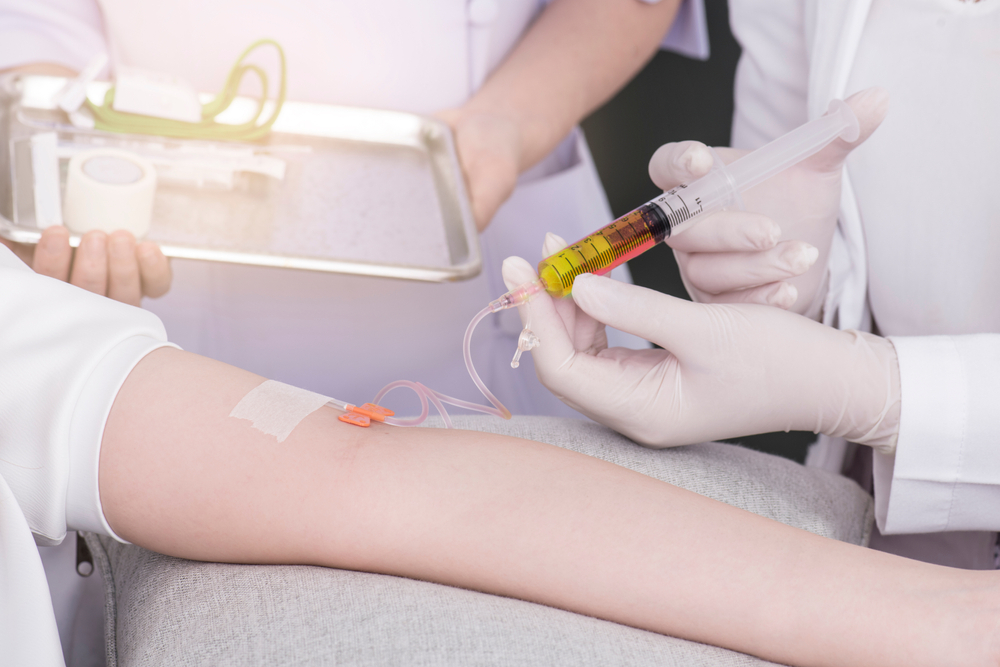Vitamin D Injection: A Vital Solution to Combat Deficiency

Vitamin D, often referred to as the “sunshine vitamin,” plays an essential role in maintaining overall health. Unlike other vitamins, vitamin D is unique because your body can produce it when exposed to sunlight. Despite this, vitamin D deficiency is widespread, particularly in regions with limited sunlight exposure or among individuals who spend a significant amount of time indoors. This deficiency has been linked to various health problems, including weakened immune function, bone disorders, and chronic diseases.
Vitamin D injections have emerged as a potent treatment option for individuals with severe deficiency or those who have difficulty absorbing it through diet or supplements. This article will delve into the importance of vitamin D, the causes and symptoms of deficiency, and how vitamin D injections can provide an effective solution.
Understanding Vitamin D and Its Importance
Vitamin D is a fat-soluble vitamin that supports numerous bodily functions. It is crucial for calcium absorption, which helps maintain bone health and prevent conditions like osteoporosis. Vitamin D also plays a vital role in immune function, mood regulation, and the prevention of certain chronic diseases.
Research has shown that adequate levels of vitamin D can help protect against:
-
Bone Disorders: Vitamin D is essential for calcium and phosphorus absorption, crucial for maintaining strong bones and teeth. A deficiency can lead to conditions like rickets in children and osteomalacia or osteoporosis in adults.
-
Depression: Low levels of vitamin D have been linked to mood disorders, including depression. Some studies suggest that vitamin D supplementation may help alleviate depressive symptoms.
-
Chronic Diseases: A growing body of evidence suggests that vitamin D may reduce the risk of chronic diseases, such as type 2 diabetes, heart disease, and multiple sclerosis. Its anti-inflammatory properties help protect against these conditions.
-
Immune Function: Vitamin D plays a key role in boosting immune defenses, helping the body fight off infections. Individuals with low vitamin D levels may be more prone to illnesses like colds and flu.
Causes of Vitamin D Deficiency
Despite the body’s ability to produce vitamin D from sunlight, deficiency remains common worldwide. Several factors can contribute to a lack of sufficient vitamin D:
-
Limited Sun Exposure: Vitamin D is synthesized in the skin when exposed to UVB rays from the sun. People living in regions with little sunlight, especially during winter, are at risk of deficiency. Additionally, individuals who spend much of their time indoors or who regularly use sunscreen may also struggle to produce enough vitamin D.
-
Age: As people age, their skin becomes less efficient at producing vitamin D from sunlight. Older adults are thus more susceptible to deficiency and its associated health risks.
-
Skin Pigmentation: Melanin, the pigment responsible for skin color, reduces the skin’s ability to produce vitamin D in response to sunlight. Dark-skinned individuals, such as those of African, Hispanic, and South Asian descent, are at a higher risk of deficiency. Nearly 82% of African American adults in the United States are estimated to have low vitamin D levels.
-
Diet: Since very few foods naturally contain vitamin D, individuals who follow restrictive diets, such as vegans, may be more prone to deficiency. Fatty fish, fortified dairy products, and egg yolks are some of the limited sources of dietary vitamin D.
-
Medical Conditions: Certain conditions, such as Crohn’s disease, celiac disease, and kidney disease, can impair the body’s ability to absorb or metabolize vitamin D, leading to deficiency.
Symptoms of Vitamin D Deficiency
Vitamin D deficiency often goes unnoticed because its symptoms can be subtle or mistaken for other health issues. However, prolonged deficiency can have serious health consequences. Some common symptoms include:
-
Fatigue: A lack of vitamin D can cause persistent tiredness and low energy levels. This fatigue can occur even after a full night’s rest.
-
Bone Pain and Muscle Weakness: Since vitamin D is essential for bone health, a deficiency can lead to musculoskeletal pain, particularly in the lower back, legs, and hips.
-
Frequent Illness: Vitamin D boosts immune function, and individuals with low levels may experience frequent infections or take longer to recover from illnesses like the flu or respiratory infections.
-
Mood Changes and Anxiety: Vitamin D has been linked to brain health and mood regulation. Low levels may contribute to feelings of depression and anxiety.
-
Slow Wound Healing: Vitamin D plays a role in the body’s ability to heal wounds and regenerate tissue. A deficiency can slow the healing process after injury or surgery.
-
Hair Loss: In some cases, severe hair loss has been associated with low vitamin D levels. While more research is needed, it is believed that vitamin D helps regulate hair follicle function.
Diagnosing Vitamin D Deficiency
Vitamin D deficiency is typically diagnosed through a blood test that measures the concentration of 25-hydroxyvitamin D, the form of vitamin D circulating in the blood. Deficiency is generally defined as levels below 20 ng/mL, while levels between 21-29 ng/mL are considered insufficient. Ideally, blood levels should be between 30-50 ng/mL for optimal health.
If you suspect you may be deficient in vitamin D, it’s important to consult a healthcare provider. They can conduct the necessary tests and recommend an appropriate treatment plan.
Treatment Options: Dietary Changes, Supplements, and Injections
There are several ways to treat vitamin D deficiency, including dietary changes, supplements, and injections. The most suitable option depends on the severity of the deficiency and an individual’s specific health needs.
-
Dietary Changes: Increasing your intake of vitamin D-rich foods can help prevent or treat mild deficiencies. Foods like fatty fish (salmon, mackerel), fortified milk and orange juice, egg yolks, and cheese are good sources of vitamin D.
-
Supplements: Vitamin D supplements are available in two forms: vitamin D2 (ergocalciferol) and vitamin D3 (cholecalciferol). Vitamin D3 is generally considered more effective at raising blood levels. Supplements are available over-the-counter in doses ranging from 400 IU to 5000 IU or more. In cases of moderate deficiency, your healthcare provider may recommend a daily supplement of 1,500-2,000 IU.
-
Vitamin D Injections: For individuals with severe deficiencies or those who cannot absorb vitamin D through diet or supplements, vitamin D injections offer a powerful solution. These injections deliver a high dose of vitamin D directly into the bloodstream, quickly boosting levels. They are typically given every 3-6 months, depending on the individual’s needs.
Benefits of Vitamin D Injections
While dietary changes and oral supplements work for many, vitamin D injections have several distinct advantages, particularly for those with severe deficiencies or malabsorption issues:
-
Rapid Restoration of Vitamin D Levels: Vitamin D injections provide an immediate boost in blood levels, making them ideal for individuals who need a fast intervention. This is especially important for individuals with dangerously low levels of vitamin D who may be experiencing significant health issues.
-
Convenience: Injections can be administered less frequently than daily supplements, which is convenient for individuals who may forget to take pills regularly or have difficulty swallowing them.
-
Effective for Absorption Issues: For individuals with digestive disorders that impair nutrient absorption (e.g., Crohn’s disease, celiac disease), vitamin D injections bypass the digestive system and deliver the vitamin directly to the bloodstream.
-
Long-Lasting: Unlike oral supplements that require daily intake, vitamin D injections may only need to be administered every few months, providing long-lasting effects.
Are There Any Risks Associated with Vitamin D Injections?
While vitamin D injections are generally safe, they must be administered under medical supervision to avoid potential complications, including:
-
Vitamin D Toxicity: Excessive levels of vitamin D can lead to a condition known as hypercalcemia, characterized by high calcium levels in the blood. This can result in nausea, vomiting, confusion, and kidney problems. However, toxicity is rare and typically only occurs with excessive doses.
-
Allergic Reactions: In rare cases, individuals may experience allergic reactions to the injection. This risk is minimized by ensuring that the injection is administered by a healthcare professional.
- GI Revive is a powerful supplement designed to support and maintain optimal gastrointestinal health. Its unique blend of therapeutic herbs and nutrients works together to strengthen the gut lining, reduce inflammation, and improve overall digestion. With ingredients like L-glutamine, slippery elm, and marshmallow, GI Revive helps repair the digestive tract, promoting better absorption of essential vitamins and minerals. It also boosts gut immunity and aids in regular bowel movements. For those struggling with poor gut integrity or food sensitivities, GI Revive offers comprehensive support to restore and maintain a healthy digestive system.
Conclusion
Vitamin D is a critical nutrient for overall health, yet many people worldwide suffer from deficiency. Vitamin D injections provide a fast, effective way to restore vitamin D levels, particularly for those with severe deficiencies or absorption issues. By addressing vitamin D deficiency through injections, individuals can reduce the risk of chronic diseases, improve immune function, and maintain strong bones. If you suspect you have a deficiency, consult your healthcare provider to determine the best treatment approach for your needs.
Watch this website: websarticle.com for more information!


